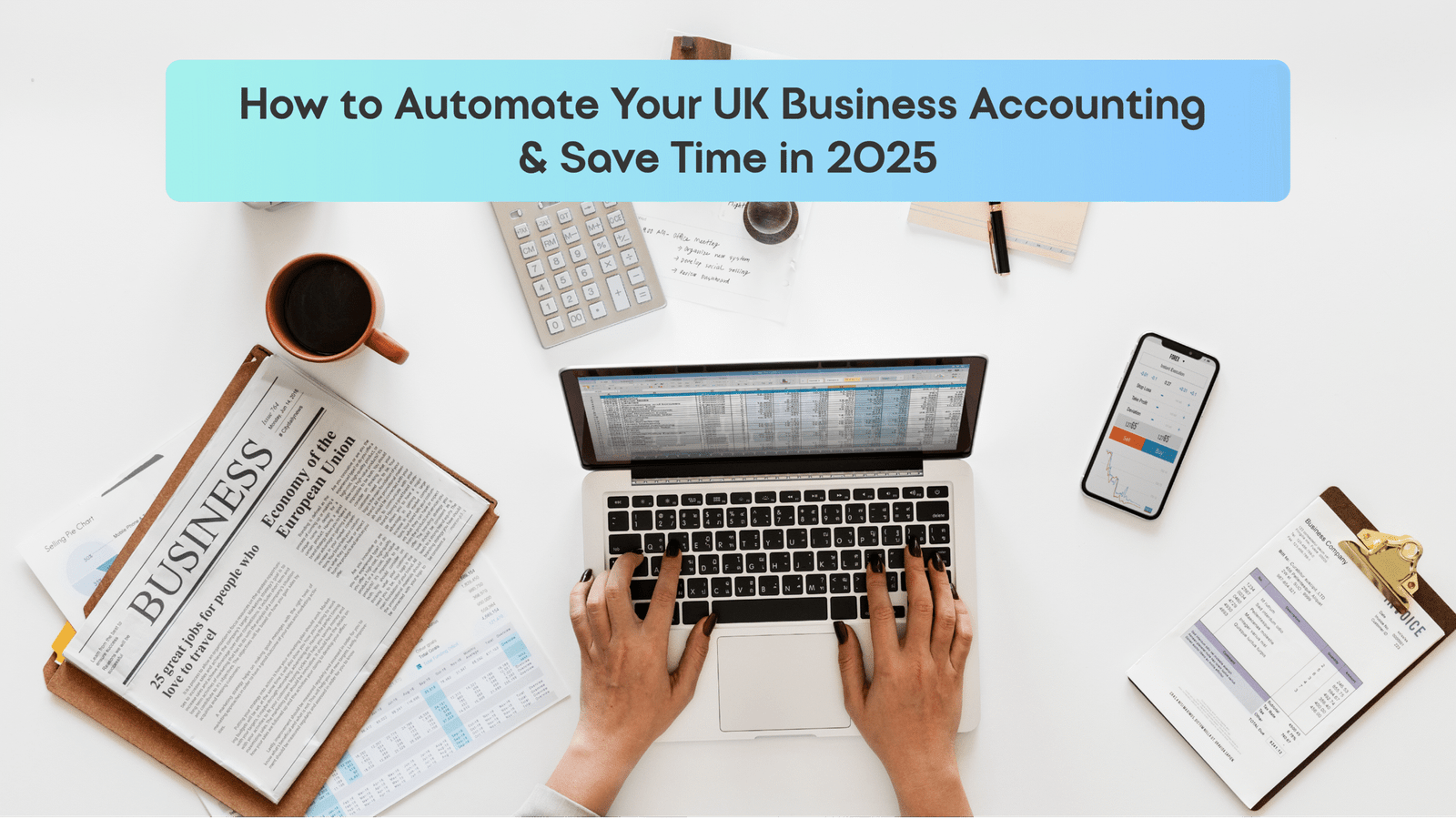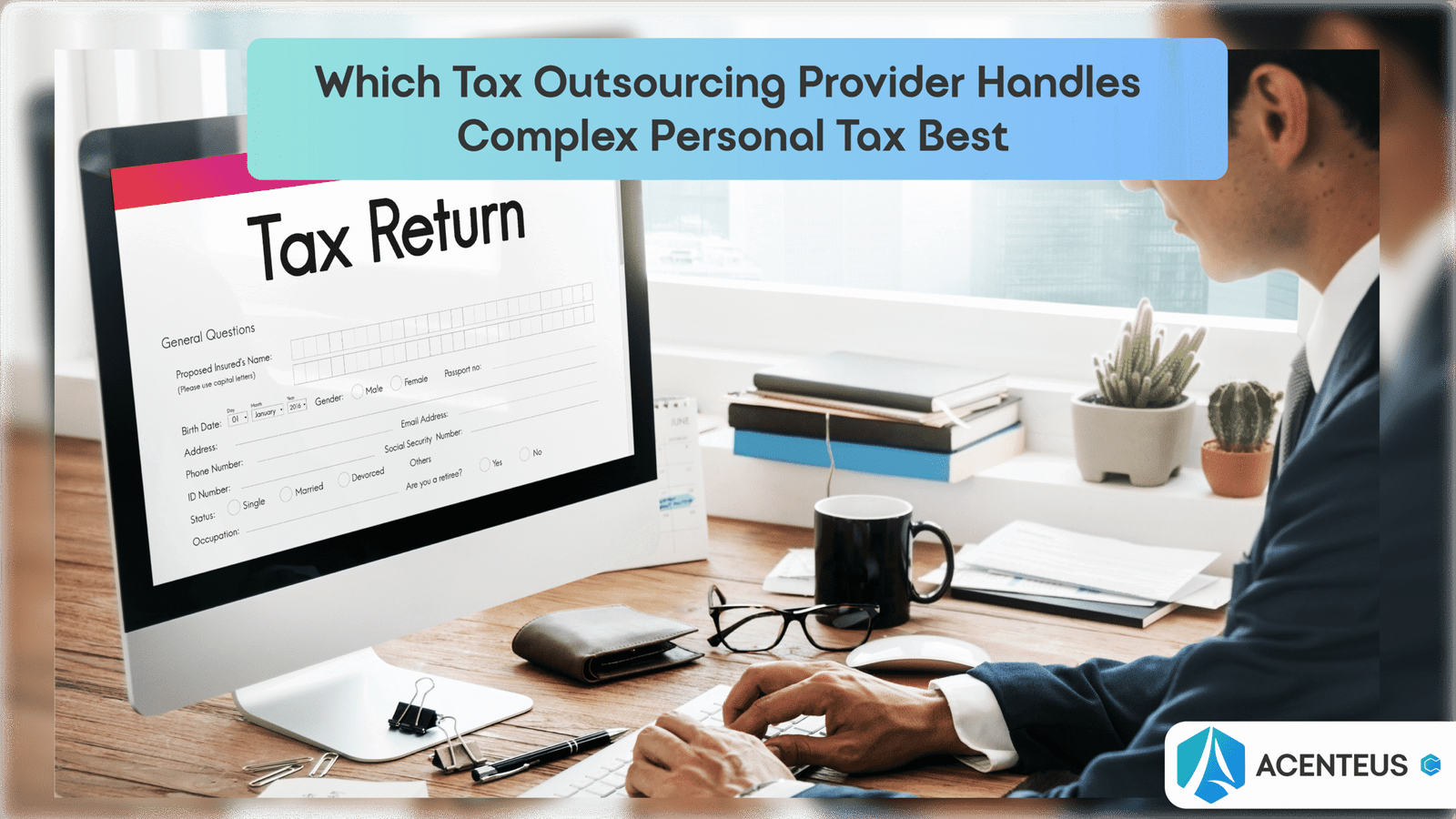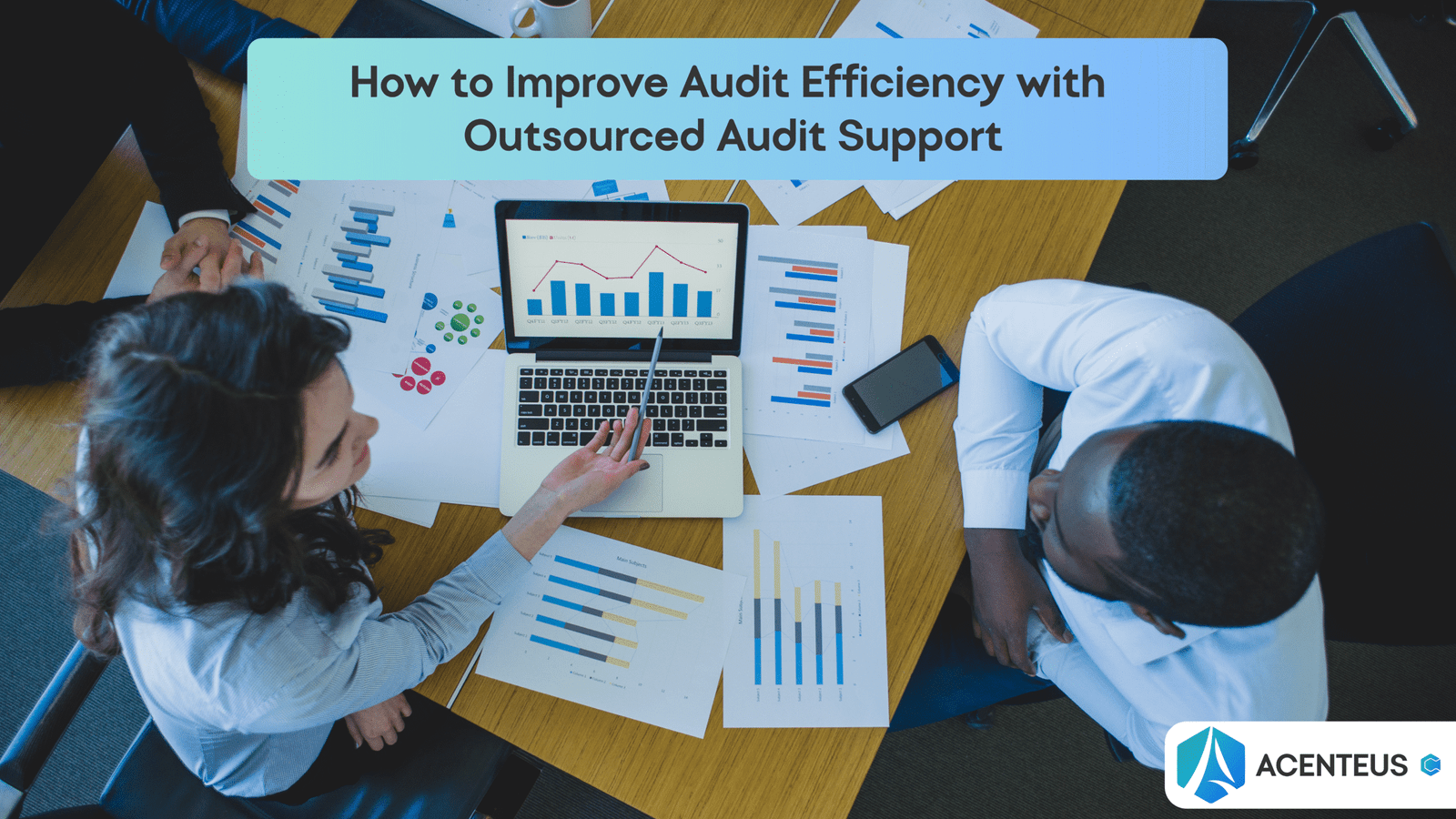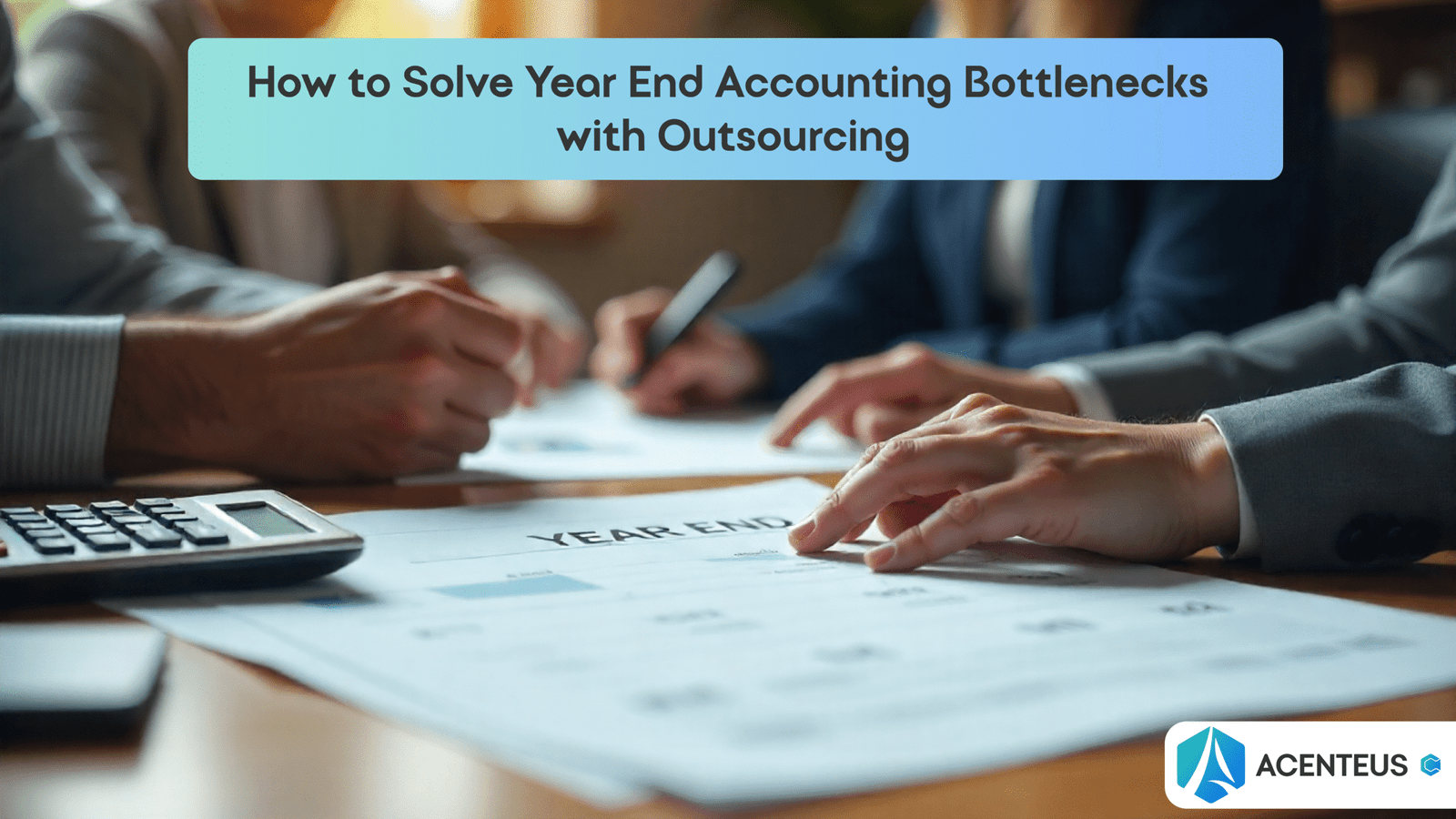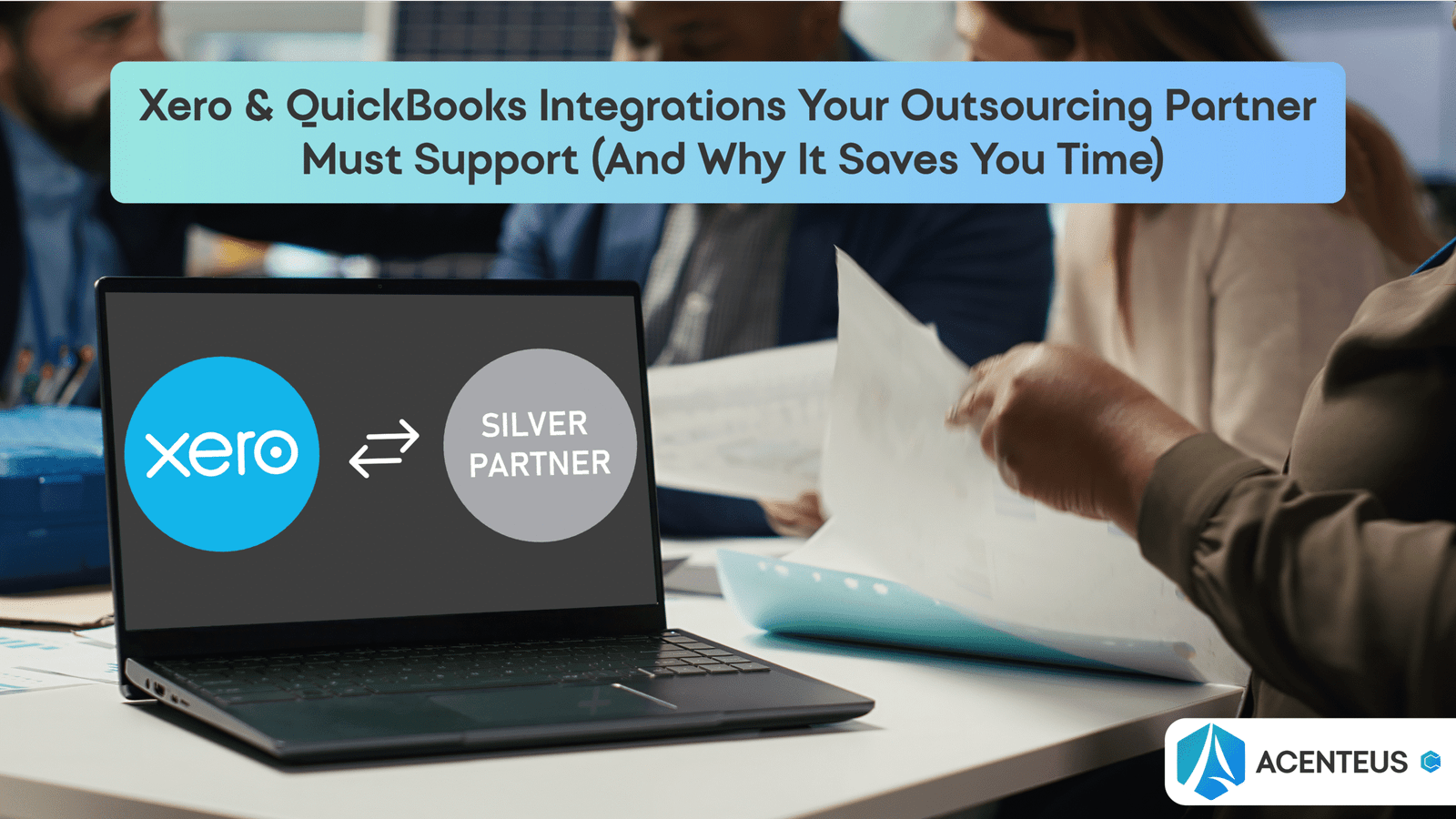How to Automate Your UK Business Accounting & Save Time in 2025
In today’s fast-paced world, you don’t have time to wrestle with endless spreadsheets. But let’s face it: if your finance team is still keying in invoices by hand, you’re leaving hours and money on the table. That’s why UK businesses of every size are turning to finance automation: to ditch the grunt work, gain crystal-clear insights in real time, and reclaim their day for big-picture strategy.
This hands-on guide shows exactly how to automate your UK business accounting from the first bank feed to the final VAT return. We’ll cover:
- What finance automation really means (and why it matters to you)
- Core processes to automate (plus two you might’ve missed)
- Newest tools and AI helpersincluding Sage’s upcoming Copilot
- How to measure ROI and prove the value
- Security, mobile access & GDPR, you sleep easy at night
- Implementation tips to keep your team smiling
Let’s get started.
Understanding Finance Automation
What Is Finance Automation?
Finance automation uses accounting software to execute routine accounting tasks such as transaction recording, invoice generation, and financial statement preparation that traditionally required manual intervention. By replacing labour-intensive work with automated workflows, businesses can complete processes in seconds rather than days, reducing human error and ensuring up-to-date compliance with initiatives like the UK’s Making Tax Digital.
Why It Matters
- Speed & Accuracy. Automating data entry and reconciliation eliminates the majority of manual mistakes and accelerates reporting.
- Cost Reduction. Less time spent on repetitive tasks means lower accounting overhead.
- Real-Time Insights. Instant access to financial data empowers better decision-making.
- Regulatory Compliance. Automated tax-return processing and digital records help you meet HMRC requirements effortlessly.
Key Accounting Processes to Automate
- Bookkeeping Use cloud-based platforms (e.g., Xero, QuickBooks) or integration tools like Link My Books to import sales data automatically. Initial setup can take as little as 15 minutes, and thereafter transactions post themselves in real time.
- Invoicing Automated invoicing software issues bills, sends payment reminders, and reconciles receipts. In the UK, where the average payment cycle is around 38 days, this can dramatically speed up your cash flow.
- Accounts Receivable & Payable Systems, such as FreeAgent, predict late payments, allocate receipts correctly, and handle supplier payments automaticallyminimising follow-up work and keeping your working capital healthy.
- Tax Compliance Cloud accounting software maintain up-to-date ledgers, calculates VAT returns, and files digital submissions in line with Making Tax Digital, all while reducing the risk of costly penalties.
- Payroll Automated payroll platforms handle salary calculations, tax deductions, pension contributions, and holiday pay. Many include employee self-service portals, cutting admin time further.
- Expense Management Smart expense apps capture receipt data via mobile OCR, categorise spending automatically, and integrate directly with your ledger, removing manual approvals and ensuring accurate reimbursements.
Benefits of Financial Automation
- Time Savings. Free your finance team from monotonous data-entry tasks so they can focus on growth initiatives.
- Error Reduction. Eliminate the 88%+ error rate common in spreadsheets by automating through machine-learning-powered tools.
- Enhanced Data Utilisation. Gain real-time dashboards and AI-driven insights for smarter forecasting and budgeting.
- Fraud Prevention. Centralised, transparent workflows make it easier to spot anomalies and maintain strict controls.
Top Automation Tools
Tool | Strengths |
Xero | Easy bank feeds, extensive app integrations |
QuickBooks | AI-driven suggestions, strong payroll module |
Sage Intacct | Advanced multi-entity consolidation and reporting |
FreshBooks | Intuitive invoicing and time-tracking for services firms |
Zoho Books | Cost-effective, tight integration with the Zoho ecosystem |
AutoEntry | 99%-accurate OCR for receipts and invoices |
Tool Recommendations by Business Type
Not all finance automation tools suit every organisation. Use this quick guide to match your business profile with the platforms best built for your needs:
Business Type | Recommended Tool(s) | Why? |
Freelancers | FreeAgent, Crunch | Designed for sole traders and contractors, with seamless SA302 and MTD support. |
Growing SMEs | Xero, QuickBooks, Zoho Books | Scalable ecosystems, robust reporting and native integrations. |
E‑commerce sellers | QuickBooks, Xero + AutoEntry | Strong bank‑feed and receipt‑capture workflows for busy online stores. |
Agencies & Services | Sage Accounting, Zoho Books | Multi‑client billing, recurring invoices and advanced permissions. |
What to Look For:
- Automated transaction capture (bank feeds, OCR)
- Real-time dashboards and alerts
- Seamless integration with sales channels and payroll
- Built-in compliance for Making Tax Digital
Implementing Automation Successfully
- Audit Your Current Workflow. Map out every accounting process to spot high-value automation opportunities.
- Choose & Pilot Software. Start smallautomate one area (e.g., invoicing) first, gather feedback, then roll out more broadly.
- Train Your Team. Provide clear, hands-on training so everyone understands new tools and best practices.
- Integrate Systems. Ensure your accounting platform communicates with your CRM, e-commerce, and banking systems to eliminate data silos.
- Scale Gradually. Introduce additional features (expense management, advanced report automation) in phases to minimise disruption.
How AI & Intelligent Process Automation Are Shaping UK Finance
AI‑powered tools are no longer a noveltythey’re redefining entire finance functions. In 2025, Intelligent Process Automation (IPA) is the next frontier, combining rule‑based workflows with machine‑learning models to:
- Predict cash flow by analysing historic transaction patterns and open invoices.
- Detect anomalies in spending and flag unusual supplier behaviour before it becomes an issue.
- Auto‑classify expenses into the correct ledger accounts, learning from every manual correction.
For instance, Sage’s Copilot leverages AI to draft your weekly cash‑flow forecast and highlights any unexpected variances; Nomi’s platform continuously refines its categorisation accuracy to over 95 per cent. By embracing IPA, UK businesses gain not just speed and accuracy, but proactive insight, turning finance from a backwards-looking function into a strategic growth partner.
Tailored Advice for UK Startups & Small Businesses
Even with limited budgets and lean teams, you can automate smart:
- Leverage free or low‑cost tiers
- Zoho Books is free if your turnover is under £35,000.
- FreeAgent often comes complimentary with select UK banks.
- Prioritise MTD‑ready platforms
Pick software with built‑in VAT‑return filing to HMRC to avoid manual submissions and last‑minute penalties. - Tap into UK innovation grants
Innovate UK Smart Grants frequently fund finance‑automation projectscheck GOV.UK for application deadlines. - Plan for deferred‑income & subscriptions
Use tools that automatically recognise revenue over time for membership models and SaaS, keeping your accrual accounting error‑free. - Automate VAT & payroll
Choose platforms that update VAT periods and payroll tax codes automatically, you stay MTD‑compliant and keep NI, pensions and PAYE filings up to date. - Set up robust expense controls
Implement approval workflows and mobile OCR capture to enforce spending limits, prevent out‑of‑policy claims and integrate expenses directly with your ledger. - Integrate from day one
Aim for pre‑built connectors to your bank, CRM and e‑commerce platform. Early integration slashes manual exports as you grow.
With these targeted stepsincluding deferred‑income recognition, VAT & payroll automation and tighter expense controlseven the smallest team can transform routine bookkeeping into an automated backbone, freeing you to focus on product development, customer acquisition and sustainable growth.
Case Study:
How Acenteus CCA Helped Brighton Bistro Boost Cash Flow
Client: Brighton Bistro, a family‑run restaurant in East Sussex
Challenge:
Brighton Bistro relied on manual invoice chasing and spreadsheet‑based cash‑flow tracking. Their average Days Sales Outstanding (DSO) sat at 52 days, causing unpredictable working capital shortages during peak season.
Solution:
- Automated Invoicing & Reminders: We set up Xero with AutoEntry to capture receipts and trigger payment reminders at 30, 45 and 60 days.
- Real‑Time Cash‑Flow Dashboard: Integrated the restaurant’s bank feeds with a live Power BI dashboard for daily visibility.
- MTD‑Compliant VAT Filing: Mapped their chart of accounts for quarterly digital VAT returns directly to HMRC.
Results (3 months post‑launch):
- DSO reduced from 52 to 28 days (a 46 per cent improvement).
- Time saved: 12 hours per month on invoice chasing and reconciliation.
- Improved forecasting: Zero end‑of‑month cash surprisesBrighton Bistro could plan ingredient orders and staffing with confidence.
“Working with Acenteus CCA transformed our back office. We can finally focus on crafting menus, not chasing invoices.”
Emma Clarke, Owner, Brighton Bistro
Overcoming Common Challenges
Challenge | Solution |
Data Integration | Use middleware or native integrations to link sales and accounting tools. |
Change Management | Roll out new processes gradually; secure leadership buy-in. |
Maintaining Communication | Build a cohesive software ecosystem with open data-sharing APIs. |
Conclusion
Automating your UK business accounting isn’t just about cutting costs; it’s about empowering your team with accurate, real-time insights and freeing them up to focus on strategic growth. By targeting key processes, choosing the right tools, and rolling out changes thoughtfully, you can transform your finance function into a competitive advantage that supports long-term success.
Ready to Transform Your Finance Function?
If you’re ready to reclaim hours, tighten up cash flow and sleep easily come VAT season, let Acenteus CCA be your partner.
Book your free 30‑minute consultation today and discover how we can automate, optimise and grow your finance operations stress‑free.
Frequently Asked Questions
Finance automation is the practice of using software and technology to automatically carry out financial tasks such as invoicing, payroll, accounts payable/receivable, reporting, and budgeting without manual intervention. Its goal is to reduce effort, increase accuracy, and accelerate processes across the finance function
Key tasks include:
- Bookkeeping and bank-feed reconciliation
- Invoice generation and reminders
- Accounts payable and receivable workflows
- VAT and tax-return filing under Making Tax Digital
- Payroll calculations (tax, NI, pensions)
- Expense capture and approval
- Financial close and reporting
Yes. Most major cloud accounting platforms (Xero, QuickBooks, Sage) are fully MTD-compliant. They maintain digital VAT records and can submit returns directly to HMRC, helping you avoid penalties and stay aligned with current tax legislation.
Case studies show automation can save upwards of 20 hours per accountant each month by eliminating repetitive data-entry and reconciliation tasks. One mid-sized firm reported a monthly saving of over 20 hours per user after adopting Nomi’s automation features.
When evaluating tools, prioritise:
- Automated transaction capture: bank feeds, OCR for receipts
- Real-time dashboards & alerts for cash flow and compliance
- Seamless integrations with e-commerce, CRM and payroll systems
- Built-in MTD compliance for VAT submissions
- AI-driven categorisation & anomaly detection
- Scalability for multi-entity or multi-currency needs
Yes, reputable vendors offer:
- Data encryption in transit and at rest
- Role-based access controls and audit trails
- Automated backups and disaster-recovery protocols
- Regular security updates aligned with UK GDPR
These controls help minimise fraud risks and protect sensitive financial data
IPA combines Robotic Process Automation (RPA) with AI technologies (e.g., machine learning, NLP) to handle complex tasks such as variance analysis and predictive forecasting beyond simple rule-based automation. It significantly boosts accuracy and decision-support capabilities
- Audit current workflows to identify high-value automation opportunities.
- Pilot a single process (e.g., invoicing) to gather feedback.
- Train your team thoroughly on new tools.
- Integrate systems (accounting, CRM, e-commerce) to avoid data silos.
- Scale gradually, adding modules like expense management or advanced reporting over time
Absolutely. Many solutions (e.g., Xero, Zoho Books, FreshBooks) offer tiered pricing that scales with usage. Entry-level plans can cost under £10–£20/month, while delivering automation for invoicing, bank feeds, and MTD-compliance, delivering ROI in saved hours and reduced errors.
No, automation augments, rather than replaces, human expertise. By offloading routine tasks, your accountant can focus on strategic activities like forecasting, advisory services, and growth planning. The result is a more valuable partnership between finance teams and business leaders.

